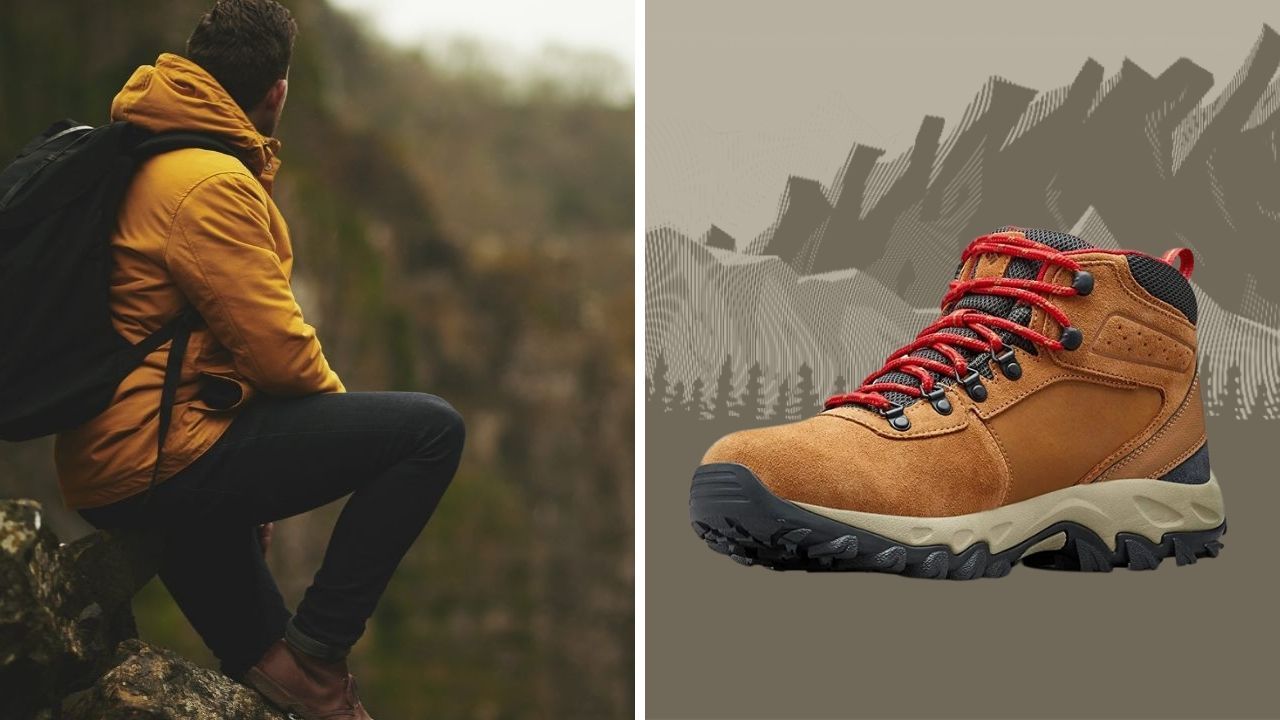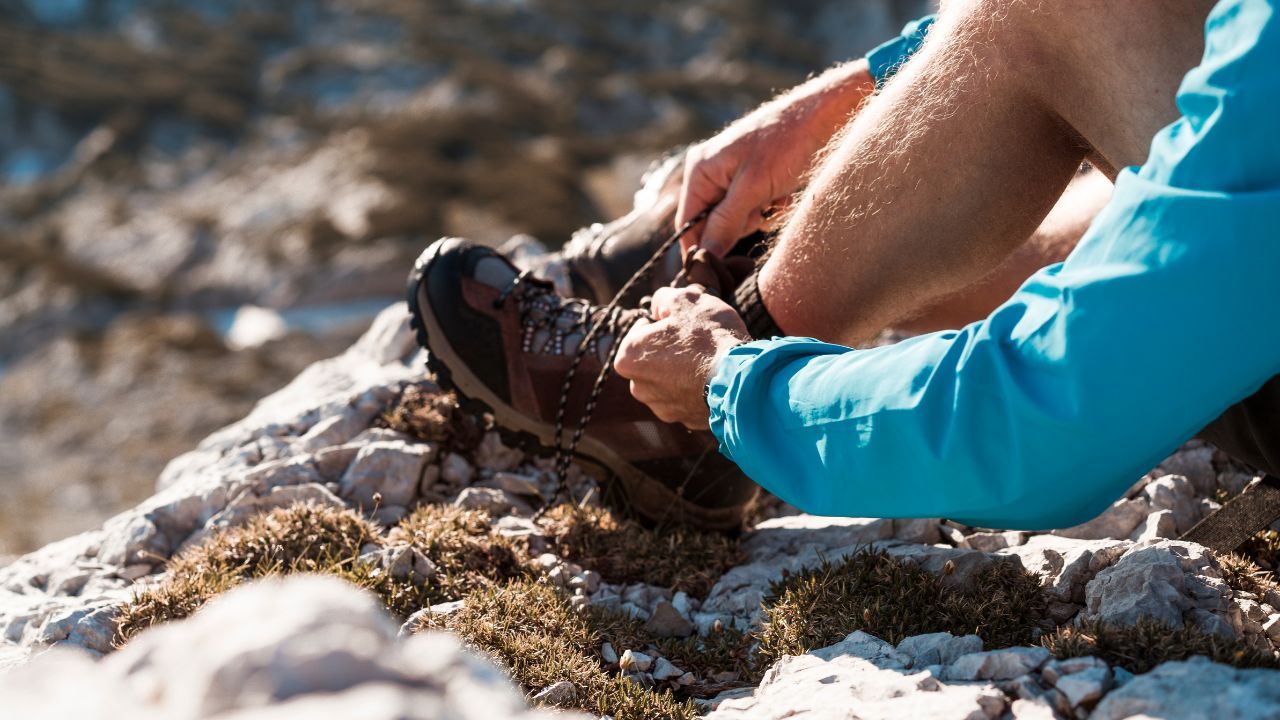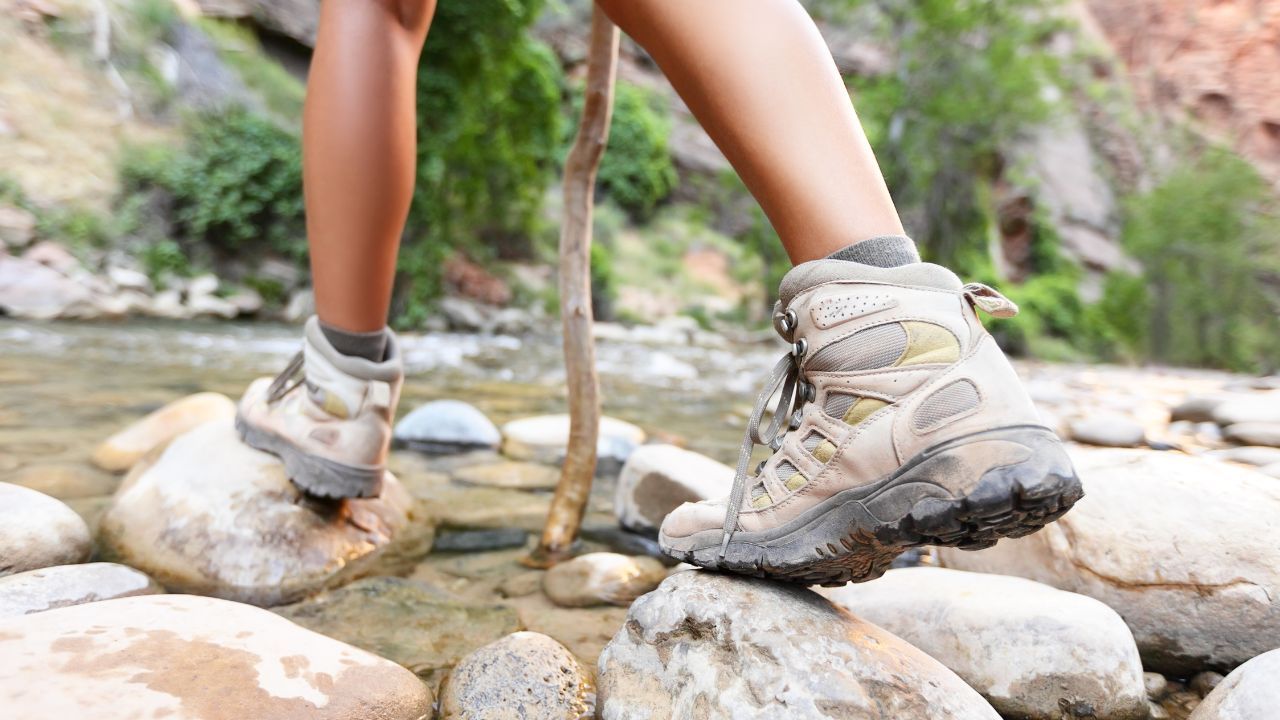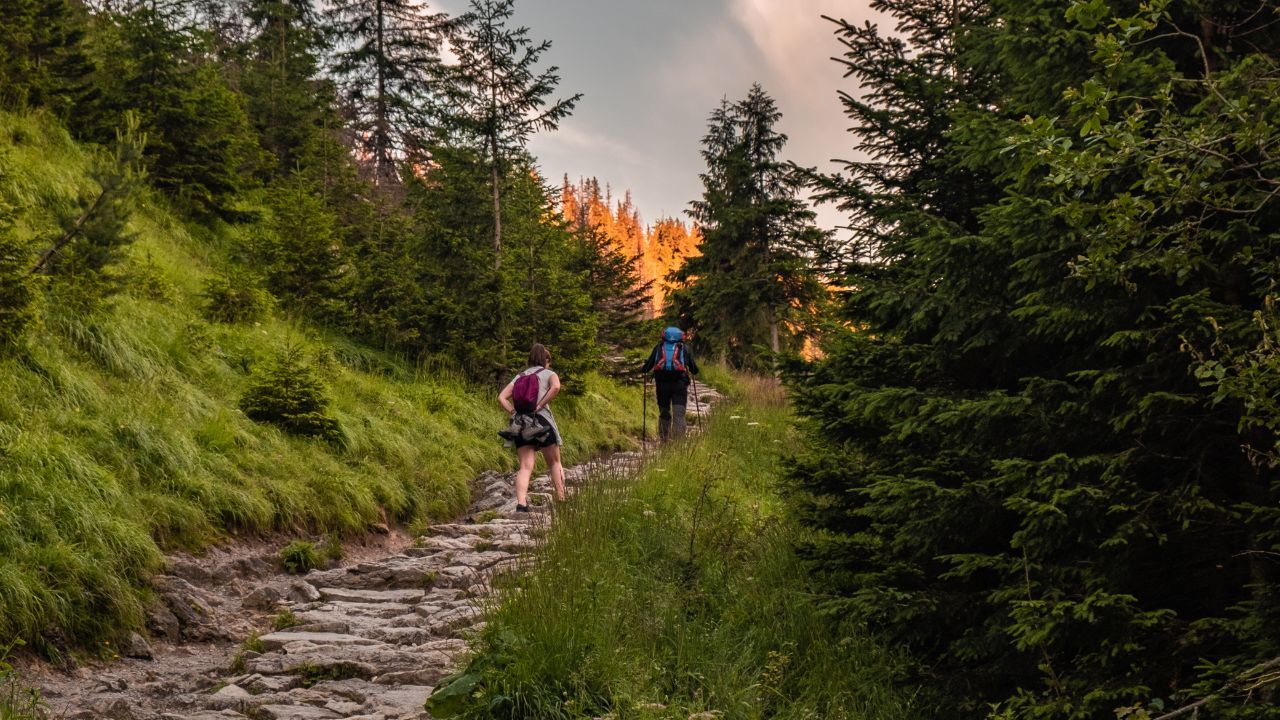
Are Backpacking and Hiking the Same Thing: Find Your Path
Unravel the mystery: Are backpacking and hiking the same thing? Dive into our exciting guide and get the answer today!
Ever found yourself standing at the edge of a lush green trail, heart pounding with excitement, only to wonder: "Am I about to embark on a hike or a backpacking trip?"
If you've ever been confused about the difference between these two popular outdoor activities, you're not alone.
In this blog post, we'll unravel the mystery that often surrounds hiking and backpacking. We'll delve into the physical and mental challenges of each, discuss the training requirements, talk about essential gear, and even touch upon some potential hurdles you might face.
So lace up those boots and join us as we journey through the thrilling world of outdoor adventure!

Unraveling the Trail: Understanding Hiking and Backpacking
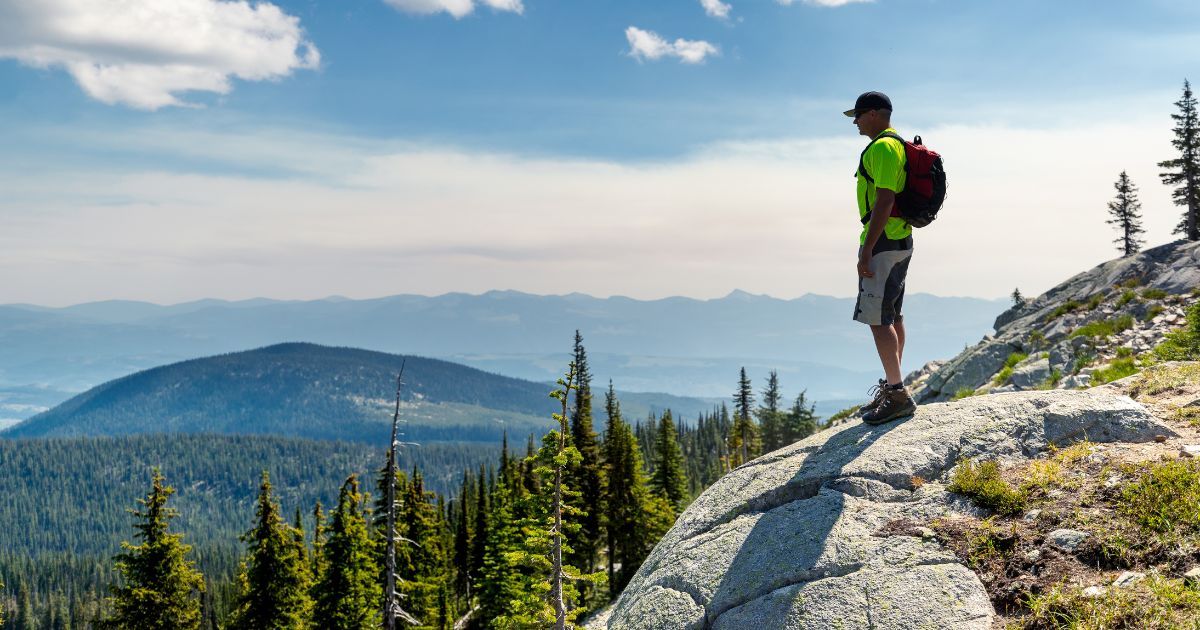
The Hiker’s Journey: An Overview of Hiking
Hiking is essentially a long walk in nature. Sounds simple, right? But there's more to it than just lacing up your boots and hitting the trail.
Hiking can range from an easy stroll along a well-marked path to a strenuous climb up a rugged mountain trail. It typically lasts for a few hours to a full day, and you usually return to your starting point when you're done.
For example, think about a day trip to Yosemite National Park where you trek to the top of Vernal Falls and back. You're surrounded by breathtaking scenery, but you don't need much more than a sturdy pair of shoes, a water bottle, some snacks, and maybe a rain jacket, just in case.
The Backpacker’s Expedition: An Exploration of Backpacking
Now, let's talk about backpacking. Unlike hiking, backpacking involves carrying everything you need to survive at least one night, several days, or weeks in the wilderness. You hike during the day, then set up camp each night in a different location along the trail.
Imagine embarking on the famous Appalachian Trail, for instance. You'd carry a backpack filled with a tent, sleeping bag, food, water, clothing, and other essentials. It's an immersive experience that truly connects you with nature and tests your survival skills.
Strength of the Summit: Physical Demands of Hiking and Backpacking
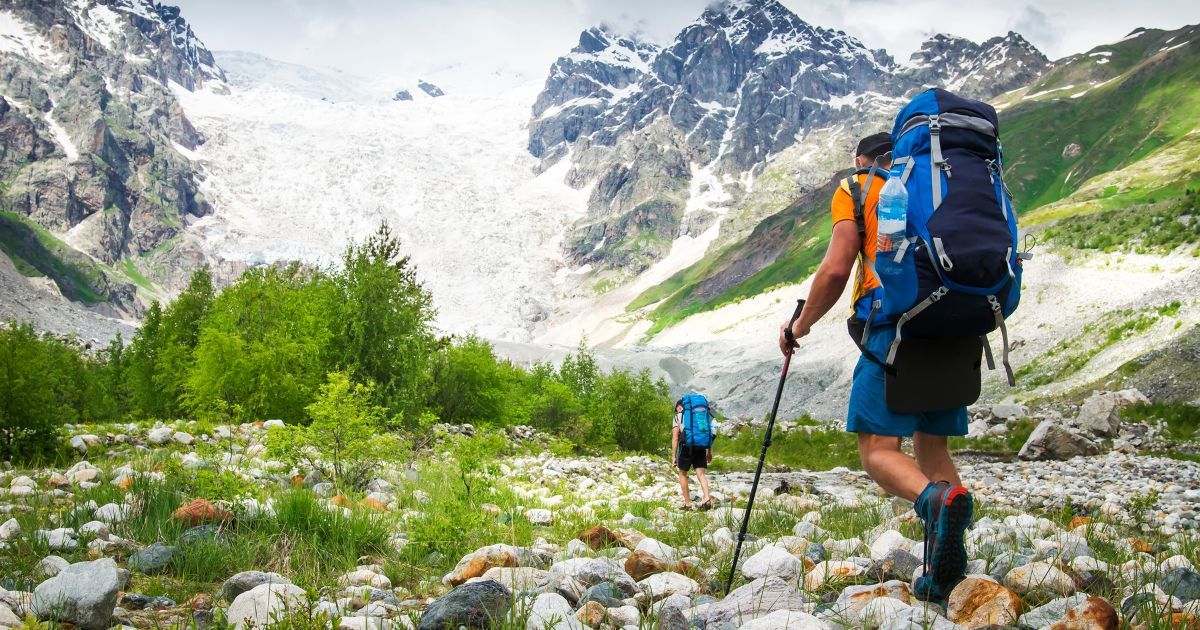
Hiking: A Test of Strength and Stamina
Hiking is more than just a walk in the park. Depending on the trail's difficulty, it can be a real test of your physical fitness. You're often dealing with uneven terrain, steep inclines, and possibly high altitudes.
This means you'll need a good level of cardiovascular fitness, strong leg muscles, and plenty of endurance. For example, tackling a trail like Angel's Landing in Zion National Park, known for its steep and narrow paths, will surely test your strength and stamina.
If you're uncertain about your capabilities, it's advisable to start with a beginner trail and gradually progress as you gain more experience in hiking. This approach allows for a smoother transition and a better understanding of your own abilities.
Backpacking: The Ultimate Physical Challenge
Backpacking takes the physical demands of hiking and adds the extra challenge of carrying a heavy pack. Your shoulders, back, and core will all get a serious workout as you navigate the trail with a backpack full of camping gear and provisions.
Consider the Pacific Crest Trail, a long-distance trail that spans 2,650 miles from Mexico to Canada. Backpackers on this trail face the ultimate physical challenge, carrying everything they need for weeks or even months on end.
Mind over Mountain: Mental Demands of Hiking and Backpacking
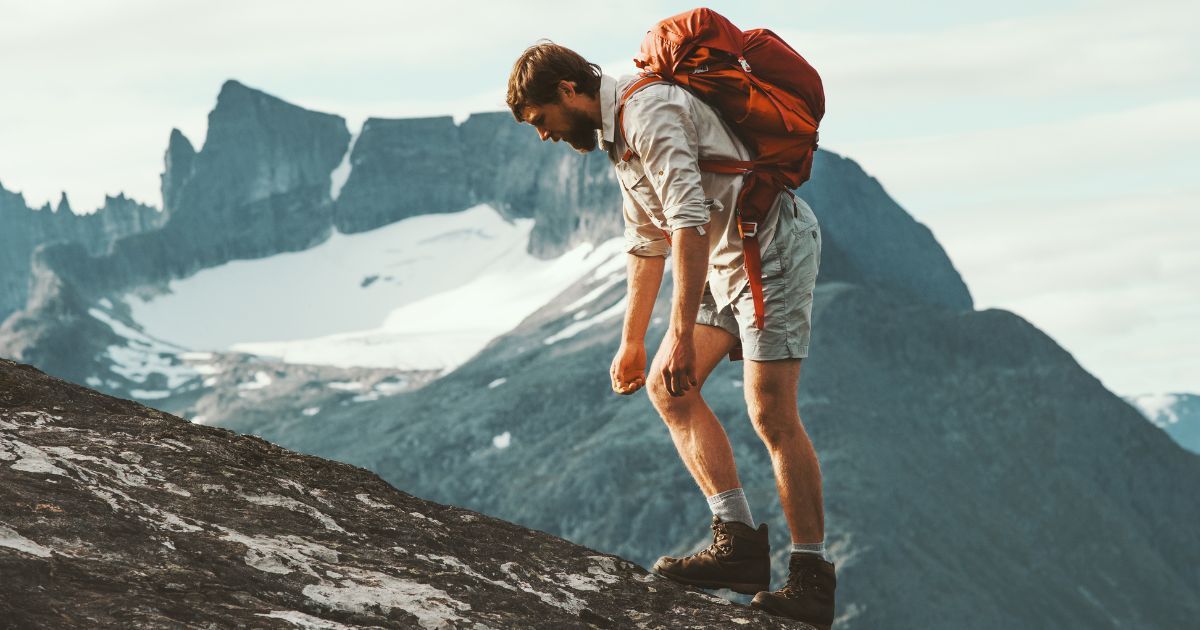
Mental Fitness for Hiking: More Than Just a Walk in the Park
Hiking isn't just physically demanding; it also requires mental toughness. Navigating an unfamiliar trail, dealing with unexpected weather changes, or pushing through fatigue can all be mentally challenging.
Remember, when you’re halfway up Mount Washington and the mist rolls in, it’s not just your legs doing the work, your mind needs to stay focused too.
Psychological Resilience in Backpacking: The Long Haul
Backpacking, especially on multi-day trips, can be a psychological marathon. Loneliness, homesickness, and constant physical discomfort can weigh heavily on your mind. It's crucial to have strong mental resilience to keep going, even when the trail gets tough.
For instance, on a long and solitary trek like the Continental Divide Trail, your mental endurance is just as important as your physical endurance. Your mind will give up on you long before your body.
Adventure Prep: Training Requirements for Hiking and Backpacking
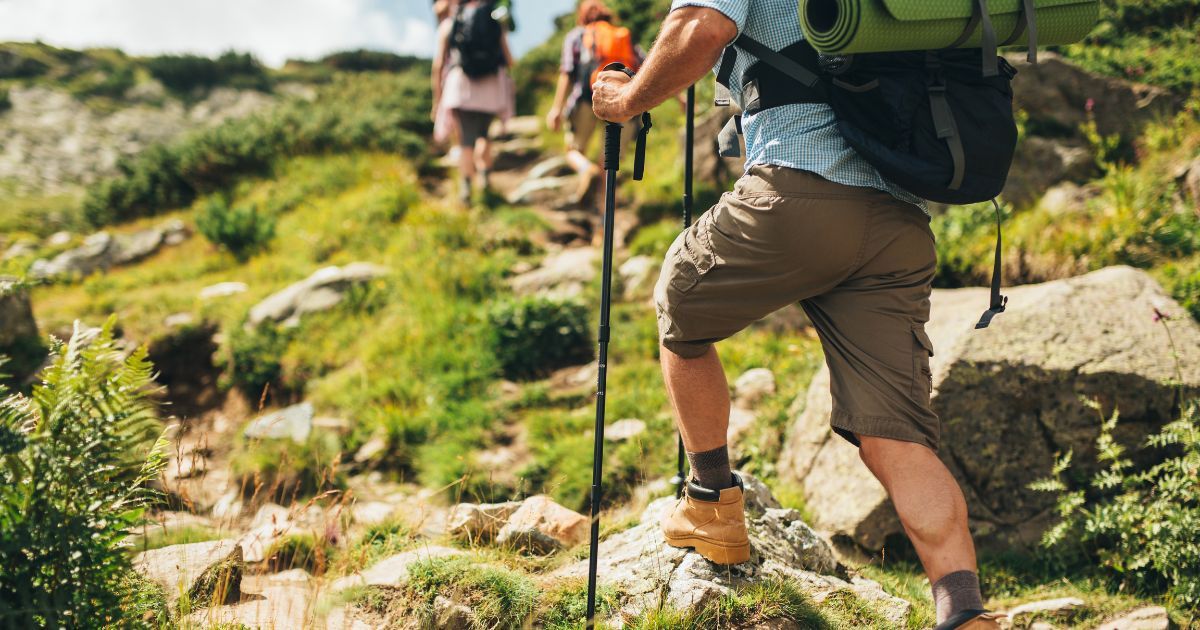
Training Tips for Aspiring Hikers
If you're new to hiking, start by walking regularly. Gradually increase your distance and start adding in some hills. Cardiovascular exercises and strength training can also help build your fitness.
Remember, it's not a race. Start with shorter, easier trails and gradually tackle longer, more challenging ones. The Grand Canyon rim-to-rim hike wasn’t built in a day!
Backpacking Preparation: Getting Ready for the Long Trek
For backpacking, you'll need to add weight training to your routine to prepare for carrying a heavy pack. Practice hiking with a loaded backpack or a weighted vest to get used to the weight. And don't forget to break in your hiking boots to avoid blisters on the trail.
For example, before taking on a demanding route like the Appalachian Trail, make sure you've spent plenty of time training with a loaded pack.
Gear Essentials: Equipping Yourself for Hiking and Backpacking

Hiking Gear: Light but Mighty
When it comes to hiking, the gear you need can be quite minimal. A pair of hiking boots or shoes, a comfortable backpack, weather-appropriate clothing, plenty of water, some snacks, and a map, GPS device, or trail guide is often enough for a day hike.
For instance, if you're planning to hike the picturesque trails of Acadia National Park, these essentials would suffice.
Backpacking Equipment: Packing Smart for the Long Journey
Backpacking requires more extensive gear. In addition to your hiking essentials, you'll need a tent, sleeping bag, cooking equipment, food supplies, a first-aid kit, and more.
Imagine packing for the John Muir Trail – you'd need to carry everything necessary for survival during your multi-day adventure.
Tackling the Terrain: Potential Challenges in Hiking and Backpacking
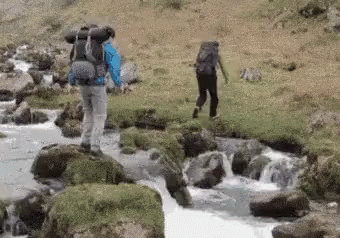
Common Hiking Hurdles and How to Overcome Them
There's no doubt about it, hiking is a fantastic way to immerse yourself in nature, challenge your body, and rejuvenate your mind. Yet, like any adventurous pursuit, it comes with its share of challenges.
From unexpected weather changes to difficult terrain, hiking presents various challenges. A sudden rainstorm on your Rocky Mountain hike can turn an easy trail into a slippery challenge.
But don't fret! With the right knowledge, preparation, and a dash of determination, you can tackle these hurdles head-on and emerge victorious.
- Navigating Rough Terrain: Rocks, roots, steep inclines...the great outdoors can be a tricky playground! But with the right footwear offering ample support and grip, you can navigate like a pro. Consider investing in quality hiking boots that are both comfortable and sturdy. Remember, practice makes perfect. The more you hike, the better your balance and agility will become!
- Weather Woes: Unpredictable weather can be a real dampener on your hiking plans. But fear not, fellow adventurers! A reliable weather app, combined with some smart layering techniques, can ensure you stay dry, warm, and ready for action. Pack a lightweight waterproof jacket, and don't forget a hat and sunglasses for those sunny days!
- Fatigue & Dehydration: Extended physical exertion requires regular refueling. Pack high-energy snacks like nuts, dried fruit, and energy bars. Hydrate often, even if you don't feel thirsty. A hydration pack can be a game-changer, allowing you to sip water without having to stop or slow down.
- Wildlife Encounters: While spotting wildlife can be an exciting part of the hiking experience, it's crucial to remember that we're visitors in their home. Stay at a safe distance, don't feed animals, and know what to do in case of an encounter with potentially dangerous wildlife. A little research goes a long way!
- Getting Lost: A good map, compass, and basic navigation skills are essential tools for every hiker. In today's tech-savvy world, GPS and hiking apps can also provide extra reassurance. However, always have a backup plan in case technology fails.
Backpacking Barriers: Facing and Surmounting Difficulties
Backpackers and hikers may seem similar in nature, but there are several unique challenges that backpackers face compared to their hiking counterparts.
Carrying a heavy load, setting up camp each night, and maintaining your energy levels over several days can be tough. On a long trail like the Pacific Northwest Trail, you might also have to navigate tricky rough terrain, cross rivers, or even deal with wildlife encounters.
- Weight Management: Backpackers carry everything they need for survival - from food and water to shelter and clothing. The weight of these items can add up quickly, making the physical exertion significantly greater than that of a day hike.
- Extended Duration: Unlike hikers who typically return home at the end of the day, backpackers are often out for several days or weeks at a time. This extended duration can lead to fatigue, both physical and mental, and requires careful planning and rationing of supplies.
- Food and Water Supply: Since backpacking trips last several days, securing food and water becomes more complex. Backpackers must either carry enough provisions for their entire trip and know where to find and how to purify natural water sources, and potentially hunt or gather food.
- Camping Challenges: Setting up camp each night presents its own set of challenges. Backpackers need to find suitable sites, set up tents, manage campfires, and ensure they're following Leave No Trace principles.
- Navigation Skills: While hikers also need to navigate, the stakes are higher for backpackers. They must be adept at using maps, compasses, and potentially GPS devices, as getting lost or off-track can have serious consequences when you're days away from help.
- Wildlife Encounters: With nights spent in the wilderness, backpackers have a higher likelihood of encountering wildlife, some of which may be dangerous. Knowledge of local wildlife behavior and safety measures is crucial.
- Weather Conditions: Backpackers must be prepared for a wider range of weather conditions, as they'll be outdoors for extended periods. Having the right gear to protect against unexpected weather changes is key.
- Isolation: Backpacking can often involve trekking through remote and isolated areas. Dealing with this isolation, particularly if problems arise, is a challenge unique to backpacking.
Different Styles and Variations of Hiking and Backpacking
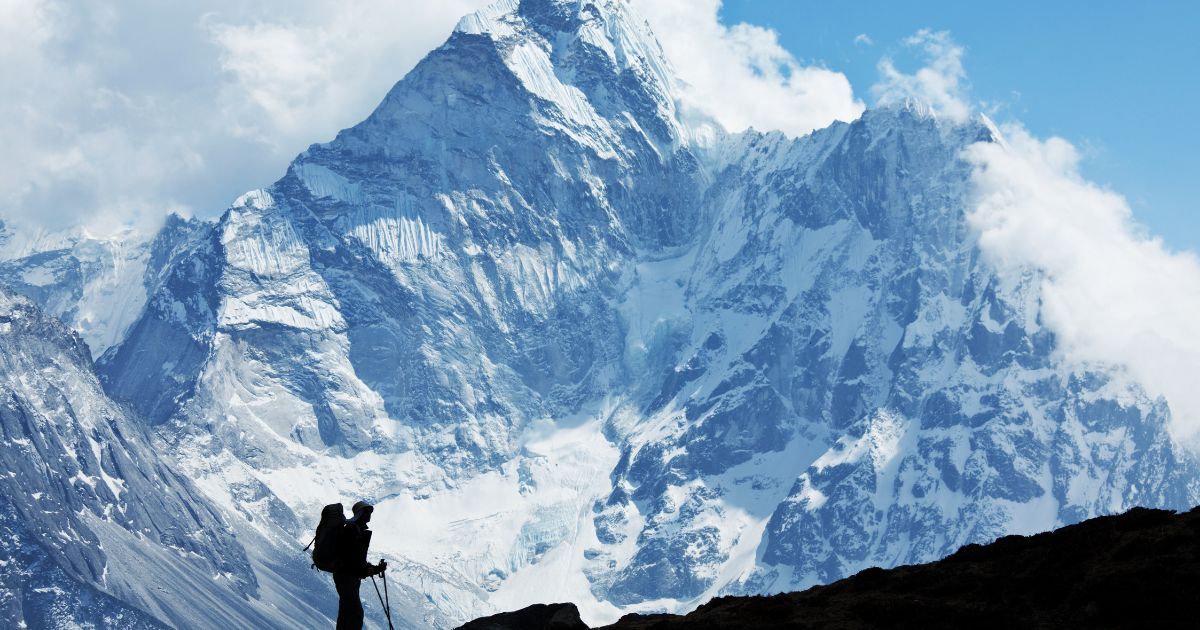
Are you ready to dive into the thrilling world of hiking and backpacking? Fantastic! Whether you're a seasoned pro or a budding newbie, there's always a new trail to explore or a fresh challenge to conquer.
From serene forest walks to adrenaline-filled mountain treks, the realm of outdoor adventure is as diverse as it is exhilarating!
Hiking: More than Just a Walk in the Park
Hiking offers a plethora of experiences, catering to various fitness levels, time commitments, and adventurous spirits. Let's delve into some popular styles and embark on a journey through nature's wonders.
- Day Hiking: The perfect introduction to the great outdoors! They range from a beginner hike on smooth, flat trails to challenging climbs up steep hills. They're short, sweet, and don't require overnight gear. Perfect for families, beginners, or anyone looking for a quick nature escape!
- Summit Hiking: For those who love a good challenge and dream of standing on top of the world! Summit hikes involve climbing to the peak of a mountain. They can be strenuous but offer the ultimate reward: breathtaking panoramic views!
- Urban Hiking: Who says you need to leave the city to hike? Urban hiking involves exploring a city on foot, taking in the sights and sounds while keeping your heart pumping. It's a fantastic way to combine exercise with sightseeing!
Backpacking: Embrace the Wilderness Like Never Before!
Backpacking takes your outdoor adventure to the next level. It involves hiking and camping overnight in the wilderness. Here are some variations:
- Thru-Hiking: This is the marathon of backpacking! Thru-hikers complete long-distance trails from end-to-end in one season. Iconic thru-hikes include the Appalachian Trail, Pacific Crest Trail, and Continental Divide Trail. It's a test of endurance, but the sense of accomplishment is unparalleled!
- Section Hiking: Not ready for a thru-hike? No problem! Section hiking involves completing a long-distance trail in smaller, manageable chunks over time. You still get to experience the thrill of a big trail without the massive time commitment.
- Ultralight Backpacking: This style focuses on carrying the lightest and simplest gear possible. It's all about efficiency and speed. By reducing the weight of your pack, you can cover more ground quickly and reduce the strain on your body.
So, are you excited to embark on your next outdoor adventure? Remember, whether you choose a tranquil forest walk or an epic thru-hike, the journey is just as important as the destination. Happy trails!
Hiking vs. Backpacking: Embracing the Unique Thrills of Each Activity
So there you have it! While hiking and backpacking share many similarities, they offer distinct experiences. Hiking lets you enjoy nature's beauty without the commitment of an overnight stay, while backpacking immerses you in the wilderness for a longer, more challenging adventure.
Whether you prefer the lightness of a day hike or the endurance test of a backpacking trip, both activities provide a fantastic way to connect with nature and test your limits. We encourage you to try both and experience the unique thrills that each activity has to offer.
Now that you're equipped with the knowledge of what hiking and backpacking entail, why not plan your next outdoor adventure? Remember, every great journey begins with a single step. So lace up those boots, pack that bag, and hit the trail. Happy adventuring!
Please remember to share your hiking and backpacking tips in the comments section below. We would greatly appreciate your valuable insights and recommendations for our readers!
Recommended For You...
